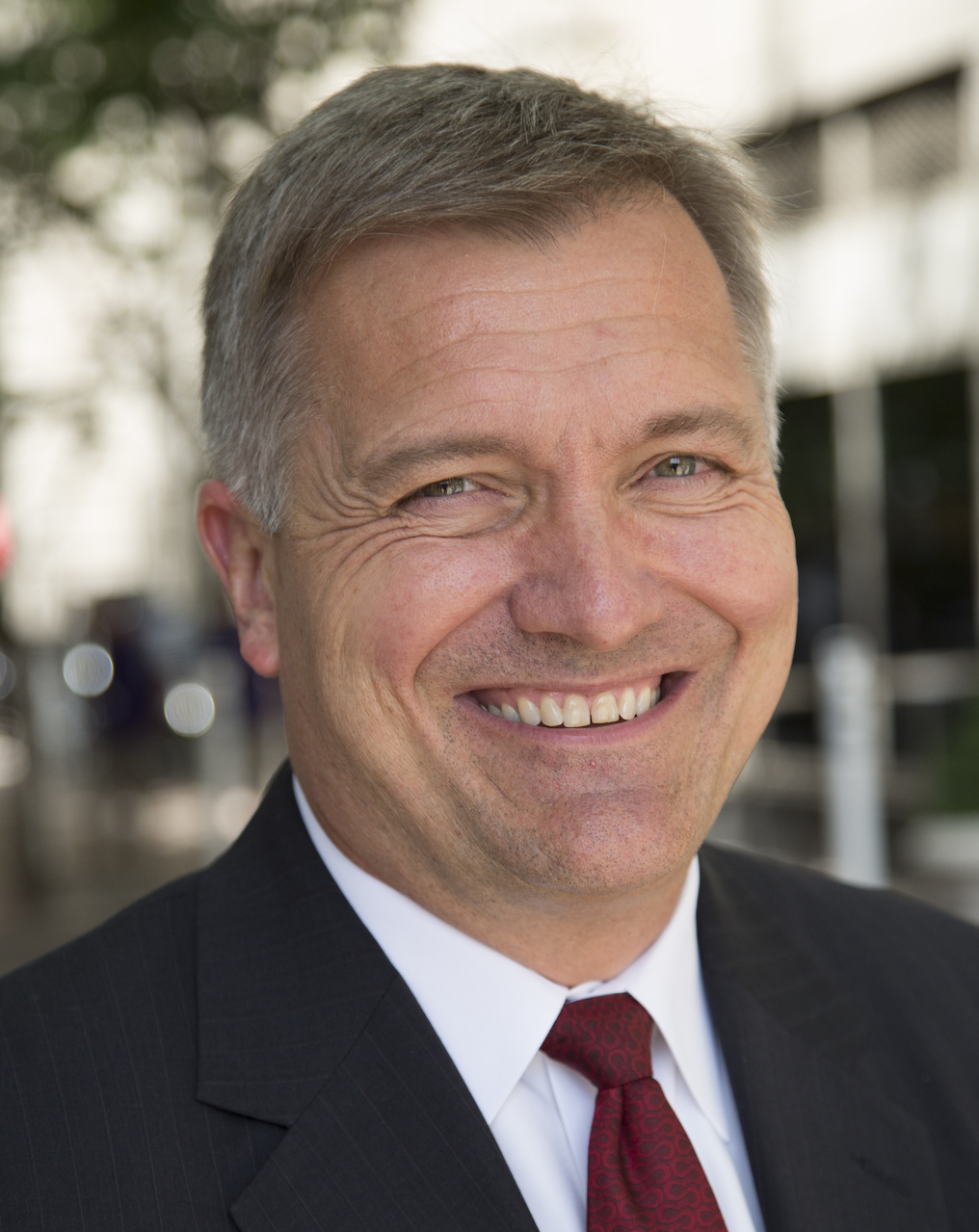July 19, 2016—Jim Matheson, a former seven-term Utah congressman, begins his tenure today as CEO of the National Rural Electric Cooperative Association (NRECA).
Matheson was selected for the position last month by the NRECA Board. He succeeds Jo Ann Emerson, who fell ill in August 2015 after serving as CEO since March 2013. Emerson’s chief of staff and NRECA COO Jeffrey Connor served as interim CEO and will continue with the association in the position of COO.
“I’m thrilled to be here and eager to roll up my sleeves and get to work with my new colleagues and NRECA’s members,” Matheson said. “My initial focus will be learning the business side of NRECA and what makes it such an exceptional and successful organization. I’m really looking forward to getting out to meet with our members to learn more about their interests and discuss how NRECA can best continue to represent them in the nation’s capital.”
Matheson brings a wealth of experience and skills to his new position. During his time in the U.S. House of Representatives, Matheson was known first and foremost as someone who could work with colleagues on both sides of the aisle to find and build upon common ground. He was Chief Deputy Whip for the House Democratic Caucus and served as co-chairman of the Blue Dog Coalition. He also was a member of the House Energy and Commerce Committee, as well as the Financial Services, Transportation and Infrastructure, and Science Committees.
Before entering government service, Matheson worked in the energy industry for several years. Immediately prior to joining NRECA, he served as Principal, Public Policy Practice for the international law firm Squire Patton Boggs.
Matheson was born and raised in Salt Lake City, Utah. He received a Bachelor’s Degree in Government from Harvard University, and an MBA in Finance and Accounting from UCLA. His wife, Amy, is a pediatrician, and they have two sons, William and Harris.
The National Rural Electric Cooperative Association is the national service organization that represents the nation’s more than 900 private, not-for-profit, consumer-owned electric cooperatives, which provide service to 42 million people in 47 states.
